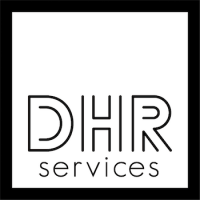The COVID-19 pandemic has resulted in unprecedented conditions. Its development, the ensuing response of health bodies and its broader impact on the community are and have been, to a great extent, unpredictable. Governments around the world have tackled the issue in different ways, with the outcomes of their response systems varying depending on the measures that they set and the timeframes in which decisions were made. Despite the different models tested per country, most countries are now in agreement, at least in this regard.
It is internationally recognized that Greece was able to optimally manage the health crisis in the first stage of its appearance. Due to the immediate general lockdown, the spread amongst our fellow citizens was significantly contained compared to most other countries. However, the weight of this decision on the economy and its direct impact on every Greek citizen were huge. Thus, the absolute restrictions were gradually replaced by what was almost a total release from these measures.
During the second stage, Greece followed the “open funnel” strategy. That is, the maximum possible release of the economy, which would be limited (closing the “funnel”) at any time and place in response to the developing situation. The aim of this strategy was to enable the economy to function at its maximum possible extent, whilst enforcing restrictions when the ever-changing situation imposed them, given that the dynamics of the pandemic have been and remain unpredictable.
This is not how the market works, however; a clear framework is a pre-requisite for viable organization. A typical example of this is Tourism, a complex network which spans within and outside of borders, directly and indirectly constituting over 30% of GDP; especially during this period, it would normally employ at least 40% of the country’s workforce. Our potential visitors’ uncertainty about what will be open on their date of arrival, what operating conditions will be in place, and the circumstances of their return made it almost impossible to organize the “chain” which constitutes tourism: the various businesses at each destination, travel agencies, tour operators, airlines and everything involved in each Journey. Conditions were changing constantly and with an irregular timeframe, which affected each location differently. This meant that a number of unpleasant “surprises” were in store for those who chose to travel despite the current circumstances. The result was a loss in the faith of the consumer. In combination with unannounced changes in rules regarding exit from, and entry to, countries of origin, confidence in travel has been affected internationally.
But what if, in the second stage, we followed the exact opposite tactic? If instead of the “open funnel” that closes unpredictably, we chose the model of a more “closed and limited funnel”, which only has room to expand? That is, if we had strategically chosen a stable framework with rules that would not change? Of course, these rules would be much stricter than those of maximum release, perhaps stricter than they really needed to be, but they would be firm, unchanging, and known to all. In this way, the operation of the market could be organized under specific conditions so as to yield the maximum results that the circumstances would allow, as the consumer would have the confidence and knowledge to make informed choices. Even if the strict framework only allowed us to address smaller market segments, consumer confidence would ensure greater efficiency. I believe that a small but feasible goal would have achieved a better end result than one that’s broader and includes a larger element of risk. In addition, it would affect the market with significantly lower operating costs.
The year 2020 has been lost where tourism is concerned, while in 2021, similar conditions are expected. In light of this, it is our duty to learn from both the right and the wrong choices made this year, and to adjust our strategy. Especially for Tourism, we should gain an understanding of the developing dynamics by collaborating with the state and institutional bodies and, of course, the “umbrella” of the private sector, SETE. It is necessary to designate specific timings for the announcements of the measures that will define the rules and operating framework of Tourism, depending on their categories. These rules should be as favorable as possible, so as to facilitate its smooth operation. It is imperative to set these strict measures in place in a timely way, aiming to increase the faith of the consumer, which will in turn ensure the existence of tourism. The difficult and volatile conditions we are called to overcome require prudence and maximum stability, wherever this is plausible.
Undermining tourism is unfounded and can be dangerous for the country’s economy and for the wellbeing of its citizens as a whole. The Greek tourism industry can and must operate despite these extraordinary conditions. Its revenue will be reduced, of course, but it will continue to constitute a vital contribution to the GDP. Due to its spillover to other sectors with a multiplier of close to 2.6, for every €1 spent directly on Tourism, an additional €2,6 is spent on related services provided by other industries. As Tourism and Catering are the largest providers of employment in our country, supporting these industries should be our priority at this time, especially with the consideration that their geographical dispersion provides employment in remote areas and islands, places that would otherwise be deserted due to the absence of productivity. The development of new economic activities in Greece is absolutely necessary and makes total sense, as it will offer a competitive advantage to the country. Notwithstanding, it is illogical to discuss that this be substituted for the viable economic activity currently taking place, which already holds a competitive advantage, great added value, multiplier benefits and huge room for further development. The tourism industry and its ‘ecosystem’ must, as a matter of priority, be supported by a long-term strategy. It is crucial to protect its integrity while safely undergoing the difficult next three years (at least) that await.



